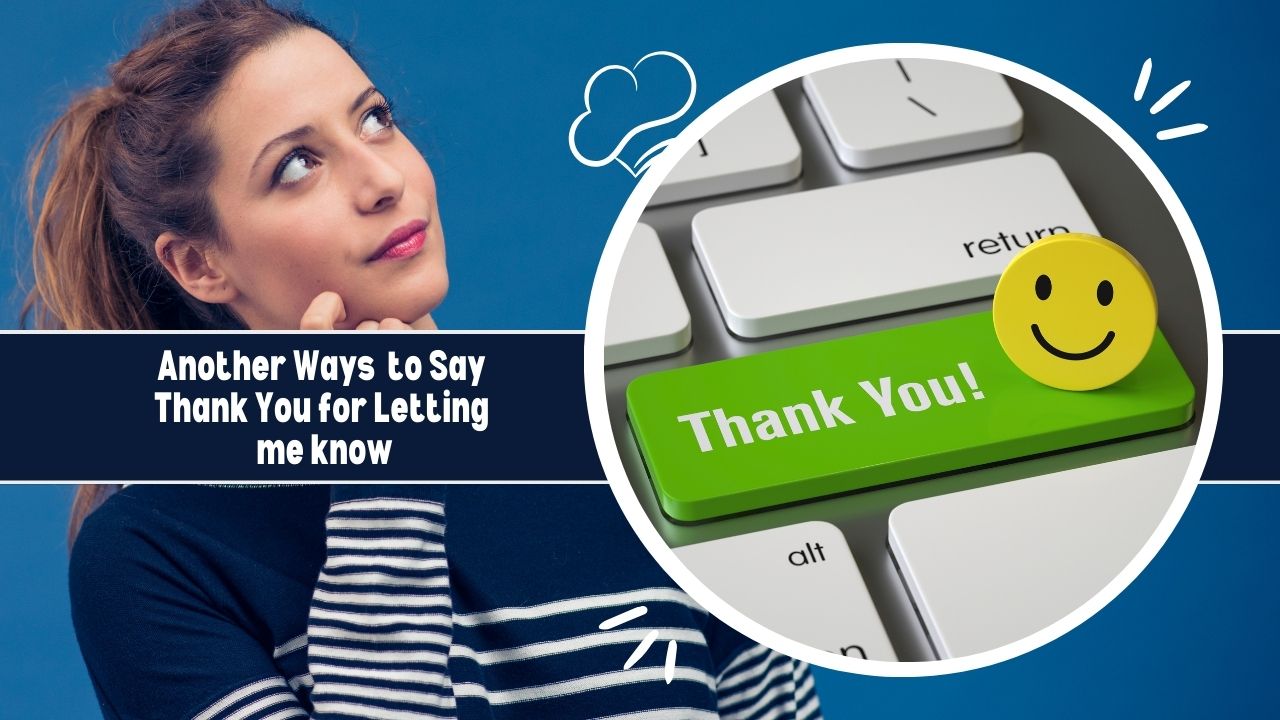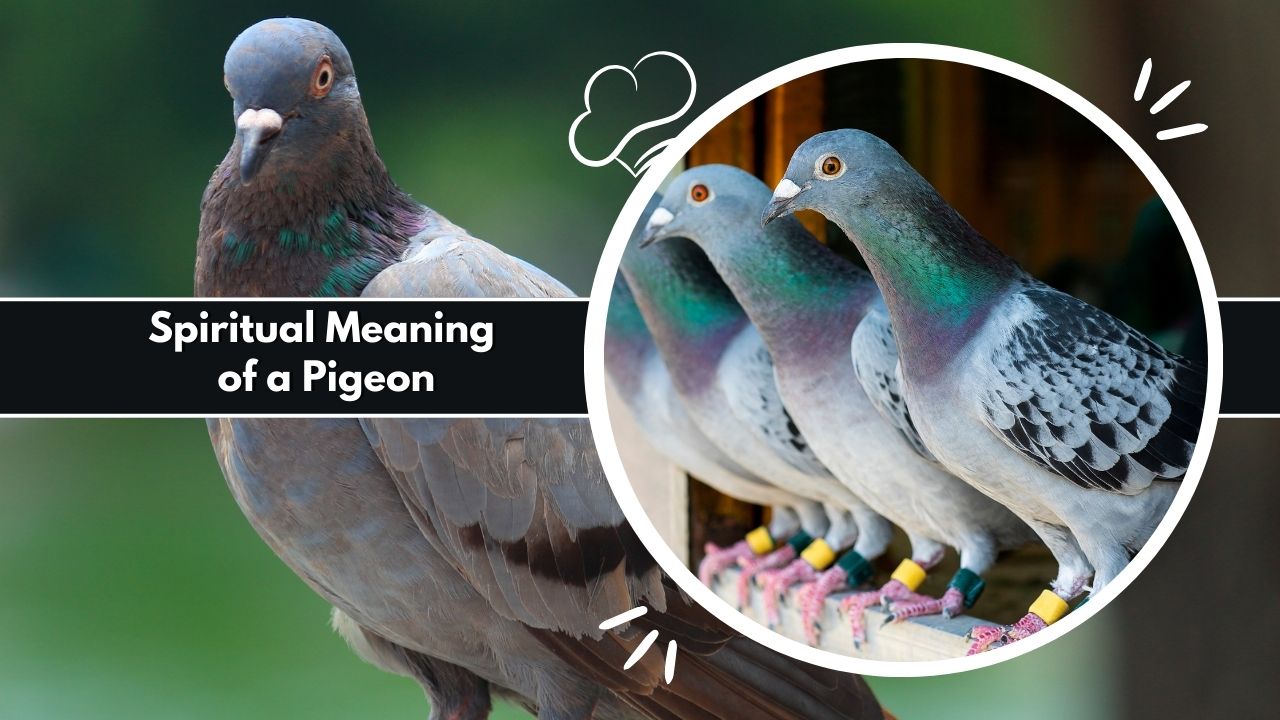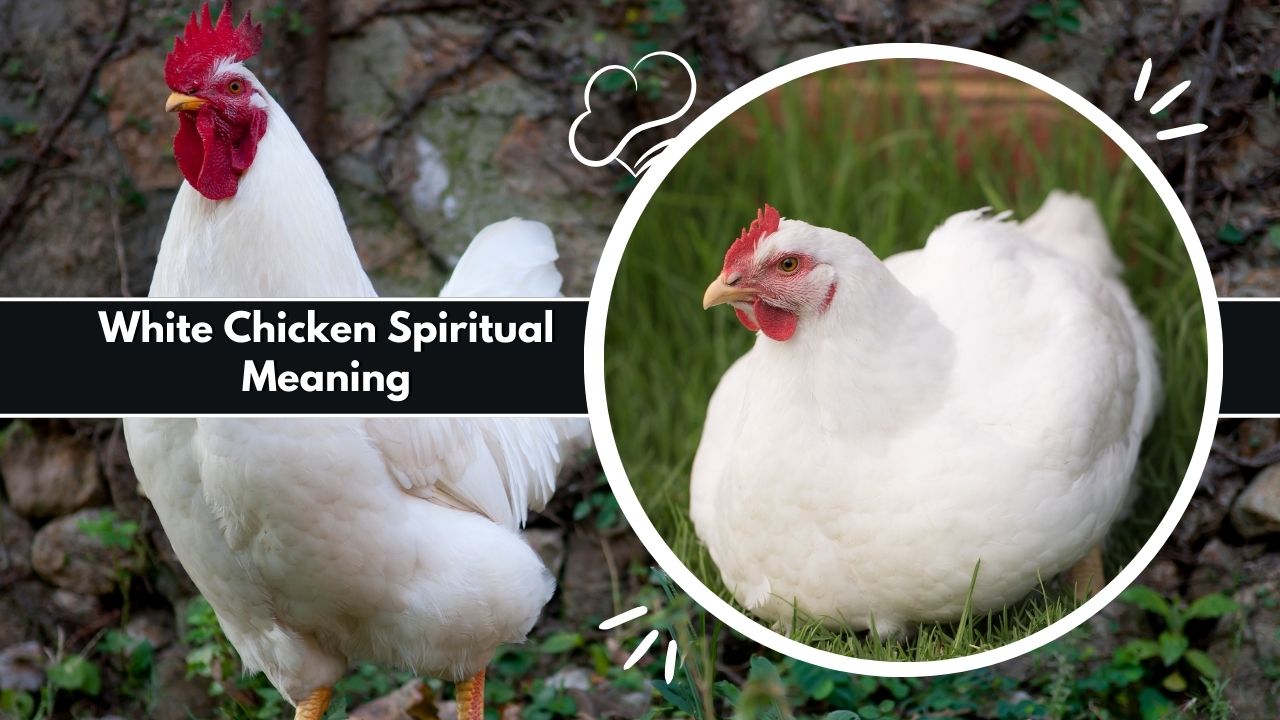Expressing gratitude can transform the way people perceive you. Saying “Thank You for Letting Me Know” is more than just good manners—it’s an opportunity to strengthen connections and build trust.
Whether you’re responding in a professional setting or a personal conversation, the way you convey thanks matters. A thoughtful response shows that you value the time and effort someone invested in keeping you informed.
This blog explores the best ways to say “Thank You for Letting Me Know” while maintaining authenticity and impact. From formal emails to casual chats, we’ll help you find the perfect words for any situation.
By mastering the art of gratitude, you can create meaningful exchanges that leave a lasting impression. Let’s dive into simple, effective ways to say thank you and make every acknowledgment count.
Why It’s Important to Say Thank You
Saying “Thank You” is more than a polite gesture; it’s a bridge that fosters trust and respect in any interaction. Gratitude helps strengthen personal relationships, boosts professional communication, and creates a positive impression.
When someone takes the time to inform or update you, acknowledging their effort shows that you value their input. It encourages open communication and reinforces the importance of their contribution.
In professional settings, a sincere thank you can improve teamwork and collaboration. In personal interactions, it deepens bonds by showing appreciation for thoughtfulness and effort.
Ultimately, saying “Thank You” isn’t just about etiquette—it’s about building meaningful connections. By expressing gratitude consistently, you cultivate an environment of respect and mutual appreciation, making every exchange more rewarding.
Best Phrases to Say “Thank You for Letting Me Know”
Finding the right words to express gratitude can make a difference in how your message is received. Here are tailored phrases for professional, casual, and formal settings to help you say “Thank You for Letting Me Know” in the most effective way.
In Professional Settings
Expressing gratitude professionally shows respect and acknowledges the effort someone put into sharing information. A well-worded thank you can build trust, strengthen relationships, and encourage open communication in the workplace. Use these phrases to maintain a polite and professional tone.
- I appreciate the update. Thank you for keeping me informed.
- Thanks for bringing this to my attention. It’s helpful to know.
- Thank you for sharing this information. I value your input.
- I’m grateful for the update. It means a lot to have clarity.
- Thank you for keeping me in the loop on this matter.
- I appreciate your transparency in letting me know.
- Thanks for notifying me about this; it’s greatly appreciated.
- I value the details you’ve provided. Thank you for informing me.
- Thank you for the timely update. It’s very helpful.
- I appreciate your effort in bringing this to my attention.
- Thanks for the clarification. I appreciate the follow-up.
- Thank you for pointing this out. It’s good to have all the details.
- I’m thankful for the update and your proactive communication.
- I appreciate your effort in keeping me updated on this matter.
- Thank you for your honesty and for letting me know promptly.
- Thanks for updating me on this important development.
- I value the insight you’ve provided. Thank you for informing me.
- Thank you for highlighting this issue and keeping me aware.
- I’m grateful for your timely communication on this subject.
- Thank you for ensuring I’m aware of these details.
- I appreciate the context you’ve shared. Thank you for notifying me.
- Thanks for flagging this for me; it’s a big help.
- Thank you for providing such a clear and concise update.
- I appreciate the effort you took to let me know about this.
- Thanks for your diligence in keeping me informed about this situation.
In Casual Conversations
In casual conversations, a relaxed and friendly tone works best when expressing gratitude. A simple acknowledgment shows appreciation without sounding overly formal. These phrases are perfect for informal chats with friends or colleagues.
- Thanks for the heads-up!
- Appreciate you letting me know.
- Good to know! Thanks for sharing.
- Thanks for filling me in.
- Oh, that’s helpful—thanks for telling me.
- I appreciate the heads-up!
- Thanks for keeping me in the loop.
- Appreciate it. Thanks for letting me know.
- Good to hear! Thanks for the update.
- Thanks for giving me a heads-up on that.
- I’m glad you told me—thanks!
- Appreciate you catching that and letting me know.
- Thanks for keeping me posted.
- Oh, got it—thanks for telling me!
- Appreciate the info. Thanks for sharing it with me.
- Thanks for bringing that to my attention!
- That’s helpful to know—thanks!
- Thanks for passing that along!
- I’m glad you mentioned it—thanks for letting me know.
- Cool, thanks for letting me know!
- Thanks for the update. That’s really helpful.
- Appreciate the heads-up—it’s good to know.
- Thanks for clueing me in!
- Good looking out—thanks for letting me know!
- Oh, awesome! Thanks for sharing that with me.
In Formal Communication
When communicating in formal settings, choosing precise and respectful language is key. Expressing gratitude professionally demonstrates appreciation while maintaining the proper tone. These phrases ensure your message is courteous and well-received.
- Thank you for informing me about this matter.
- I appreciate you taking the time to share this information with me.
- Thank you for notifying me promptly.
- I’m grateful for the update you’ve provided.
- Thank you for bringing this to my attention.
- I appreciate your diligence in sharing these details.
- Thank you for making me aware of this situation.
- I’m thankful for your effort in providing this information.
- Thank you for ensuring I have the necessary details.
- I value the update and your effort to keep me informed.
- I appreciate the clarity you’ve provided in this update.
- Thank you for taking the time to notify me about this.
- I’m grateful for your transparency in sharing this information.
- Thank you for highlighting this issue. It’s very helpful.
- I appreciate your proactive approach in letting me know.
- Thank you for updating me with such precision.
- I value the effort you’ve put into keeping me informed.
- Thank you for your attention to detail in providing this update.
- I appreciate you keeping me in the loop on this matter.
- Thank you for your professionalism in notifying me.
- I’m thankful for your timely communication on this subject.
- Thank you for shedding light on this matter.
- I appreciate the thoughtful update you’ve shared.
- Thank you for your careful explanation of the situation.
- I’m grateful for the time you’ve taken to inform me.
Personalizing Your Thanks
To make your response more meaningful, always tailor your gratitude to the specific context. Acknowledging the effort or the impact of the information shared shows that you’re attentive and value the other person’s input. Here’s how you can adapt your response depending on the situation:
When Someone Shares Critical Feedback
Feedback, especially constructive criticism, is an opportunity for growth. Recognizing the effort someone took to provide it not only shows professionalism but also encourages openness.
- Example: “Thank you for your honest feedback. Your insights are valuable and will help me improve moving forward.”
- Example: “I appreciate your perspective on this. It’s helpful to hear where I can do better.”
When Someone Helps Avoid a Mistake
When someone identifies a potential issue or prevents an error, it’s essential to acknowledge the impact their vigilance has made.
- Example: “Thanks for catching that mistake before it escalated. I truly appreciate your attention to detail.”
- Example: “I’m grateful you brought this to my attention—it saved us a lot of time and effort.”
When Someone Provides Timely Information
Timeliness is often critical, and showing gratitude for someone’s promptness emphasizes its importance.
- Example: “Thank you for letting me know so quickly. It helped me make an informed decision right away.”
- Example: “I appreciate the update—it came at the perfect time to address this.”
When Someone Clarifies Something Complex
Clarifications can resolve confusion and help move things forward. Acknowledge the clarity provided in such instances.
- Example: “Thank you for breaking that down so clearly. It’s much easier to proceed with your explanation.”
- Example: “I appreciate you taking the time to explain this. Your clarification made all the difference.”
When Someone Goes Out of Their Way to Inform You
If someone makes an extra effort to keep you informed, it’s worth recognizing their initiative.
- Example: “I’m grateful you took the time to ensure I was aware. Your effort doesn’t go unnoticed.”
- Example: “Thank you for being so proactive in sharing this information. It means a lot.”
When Someone Provides Encouraging Feedback
Positive feedback also deserves acknowledgment. Recognizing their encouragement shows that you value their support.
- Example: “Thank you for your kind words. It means a lot and keeps me motivated.”
- Example: “I appreciate your positive feedback—it reinforces what’s working well and keeps me inspired.”
By adapting your response to the context, you create a meaningful interaction that fosters stronger connections and encourages continued communication. Thoughtful acknowledgment goes a long way in showing that you truly value the information shared.
Tips for Saying Thank You Effectively
Expressing gratitude may seem simple, but doing it effectively can leave a lasting impression. Here are some tips to ensure your “thank you” is meaningful and impactful:
1. Be Specific
General thank-you messages can feel impersonal. Instead, refer to the exact reason you’re grateful. For instance:
- Instead of “Thanks for the update,” say, “Thank you for sharing the project timeline. It helps me plan effectively.”
2. Show Timeliness
A prompt response shows attentiveness and respect for the other person’s effort. Don’t delay expressing gratitude, especially in time-sensitive matters.
3. Acknowledge Their Effort
Recognize the time, effort, or expertise someone invested to help or inform you. This makes your thank you more genuine and appreciated.
4. Match the Tone to the Context
Use a professional tone in formal settings and a friendly tone in casual conversations. Adapting your language shows emotional intelligence and appropriateness.
5. Include a Personal Touch
When possible, add a personal element to your thank-you. For example:
- “I really appreciate you taking the time to explain that in detail. It means a lot.”
6. Keep It Concise
While sincerity is key, avoid over-explaining. A well-phrased, concise thank-you message often feels more genuine and impactful.
7. Follow Up When Necessary
If appropriate, follow up with actions or acknowledgments that show your gratitude wasn’t just words. For example:
- After receiving feedback, say, “Thank you for the feedback. I’ve implemented your suggestions, and it’s already making a difference.”
8. Use Positive Language
Frame your message positively to emphasize appreciation rather than obligation. For instance:
- “Thank you for clarifying this—it’s incredibly helpful,” instead of, “Thanks for explaining; I was really confused.”
9. Be Authentic
Don’t use overly flowery or exaggerated language. Keep your gratitude genuine and aligned with your personality.
10. End on a Positive Note
Conclude your thank-you message with an optimistic or forward-looking statement:
- “Thanks for your insights. I look forward to applying this in our next steps.”
By following these tips, you can make your expressions of gratitude more thoughtful and effective, leaving a lasting positive impression.
When Saying “Thank You” Goes a Long Way
A simple “Thank You” can carry immense weight in shaping relationships and fostering goodwill. Whether in professional settings or personal interactions, a well-timed expression of gratitude can open doors to stronger connections, better communication, and mutual respect.
In Professional Relationships
In the workplace, showing appreciation builds trust and encourages collaboration. For example, thanking a colleague for their input or acknowledging their effort reinforces teamwork. A sincere thank-you can motivate others, improve morale, and even lead to better opportunities down the line.
In Personal Interactions
In personal relationships, expressing gratitude deepens bonds and strengthens trust. Whether a friend offers advice or a family member helps with a task, thanking them validates their effort and nurtures your connection.
During Challenging Situations
Gratitude in difficult moments can defuse tension and foster understanding. Thanking someone for their honesty or effort, even when addressing challenges, can turn a negative situation into a constructive conversation.
A thoughtful “Thank You” isn’t just about good manners—it’s a powerful tool for fostering positivity and showing appreciation for others’ time and effort. It truly goes a long way in making every interaction meaningful.
Read More Messages:
- Thank You Messages for Boss to Say “I’m Grateful”
- Thank You Messages to Team Members for Team Spirit
- Heartfelt Thank You Messages For Hospitality
- Thank You Teacher Messages for Every Occasion
- Memorable Thank You Speeches for Graduation
Conclusion
Expressing gratitude with the right words can leave a positive impact. Choose from these thoughtful ways to say “thank you for letting me know,” and enhance your communication, no matter the setting.
By showing appreciation, you not only acknowledge someone’s effort but also create a foundation for stronger connections in the future.
FAQs
Is it correct to say thanks for letting me know?
Yes, it is correct and widely accepted to say 'thanks for letting me know' in both professional and casual settings. For a more formal tone, you might use alternatives like 'I appreciate the update' or 'Thank you for the information.'
How do I professionally say thank you for letting me know?
To say it professionally, use phrases such as 'I appreciate you bringing this to my attention' or 'Thank you for keeping me informed.' Tailor the tone to match the context and ensure it aligns with workplace etiquette.
How to professionally say thank you for the information?
You can use options like 'Thank you for providing this valuable information' or 'I am grateful for the detailed update.' Adding specific details about the information received makes your gratitude more meaningful.
Can we reply sure to thanks?
While 'sure' is acceptable in casual conversations, it may come off as too informal in professional contexts. Instead, use phrases like 'You're welcome' or 'Happy to help' to convey the same sentiment in a more polished way.
How to reply OK in a polite way?
For a polite alternative to 'OK,' consider using 'Understood,' 'Noted,' or 'Got it, thank you.' These phrases maintain a professional tone and show acknowledgment.
When to reply sure?
Replying 'sure' works best in casual conversations when someone thanks you or asks for a simple favor. In formal or professional situations, it’s better to use phrases like 'Certainly' or 'Of course' to convey a polite and professional tone.






